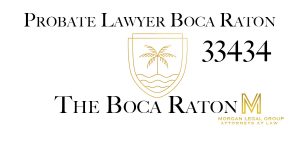Estate plan document.
The following are important documents which should be included in an effective estate plan:
Will
A will, formally called a Last Will and Testament, is a legal document by which you address the disposal of your possessions when you die. With a will, you choose your inheritors and give instructions on how and what they should receive. You can name anyone as your beneficiary, including friends, charity, etc. Without a will, your wishes are not known, and the estate laws of Florida will pass your assets to your default heirs (surviving spouse and direct descendants). Every valid will in Florida must be written and signed by a person of testamentary capacity and witnessed by at least two persons. A will must be validated in court during probate before its instructions can be carried out.
Other types of Will.
Living will
A living will allows you to write down your wishes concerning the kind of healthcare you desire during end-of-life situations.
Pour-over will
Assets funded into an irrevocable trust permanently escape your reach, and will pass down to your beneficiaries tax-free and without the necessity of probate. Since you would be unable to use these assets, the idea is to go around this by simply creating a Pour-over will and instruct that those assets be poured over into the trust as soon as you pass away. That way, you can use the assets up till your death, after which they are funded into the trust.
Trust
A trust works the same way. But as opposed to a will, a trust allows you transfer assets outside probate, and even before death. Assets funded in a trust take assume the name of the trust; thus, trusts offer tax advantages by limiting the assets held in your name. Also, a trust cannot be contested or litigated.
Revocable and irrevocable trust.
The revocable and irrevocable living trust perform the same function but operate in a slightly different manner. The revocable living trust permit change and flexibility of the trust. You can remove particular assets or change the named beneficiary in the trust. Altogether, a revocable trust can be cancelled or dissolved. Thus, this means that the trust maker retain the power over the trust during his lifetime.
However, the irrevocable living trust cannot be undone. Once the assets has been transferred into trust it cannot be changed. This type of trust is effective in reducing excessive estate taxes. A revocable trust usually turns permanent or irrevocable upon the death of the trust maker.
Spendthrift trust
This trust is created for minor who are yet able to able money. The trust helps to keep the assets for the named beneficiary until they are able to handle them.
Special need trust.
A special need trust is prepared for desired beneficiaries with special need. Funds and assets are placed into this to ensure that the special needs of the individual can be met without also forfeiting their rightful government benefits.
Life insurance trust.
Life insurance trust is an irrevocable type of trust and also a very good way to avoid excessive estate taxes. The trust collects insurances on the grantor and use it for a named beneficiary in the trust.
Avoid probate and Intestacy with a valid estate plan.
Estate planning would be more relatable when you consider what happens when you don’t have a valid estate plan. It would be right to say that, a person is decides not to have an estate plan, is planning for intestacy and long probate processes. Discussing the three term, estate plan, probate and intestacy. Estate plan are plan made to decide who handles your properties, who gets a part of your estate when you die, and who makes certain managing decision for you when you are unable to do so. Also, these estate documents could be used to make a guardians and allow smooth transition of assets thus reducing excessive estate taxes. Looking further, when someone dies without a proper estate plan in place, such individual would be said to have died intestate; meaning dying without a will or estate document. The properties of the decedent in this case would be shared though the intestacy laws of the state. Probate are court processes to determine the validity of a will or estate document. This process could be long and discouraging, however, with certain estate document, like a living trust, probate process could be avoided.








